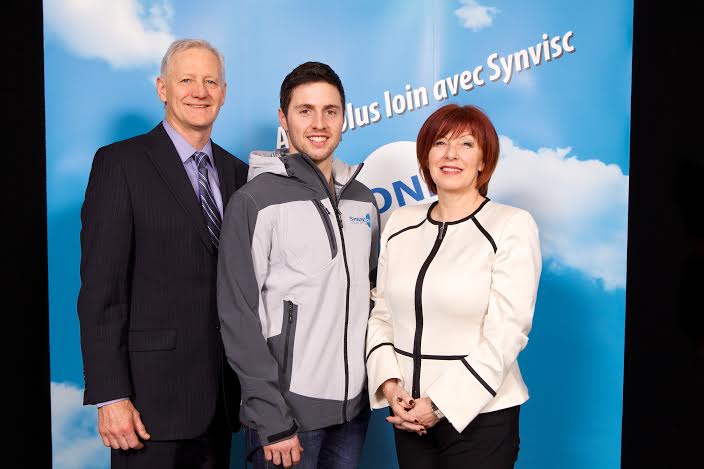You can say Alexandre Bilodeau is Concordia’s most decorated student when he returned to JMSB on Friday afternoon, in front of a crowd of cameras, fellow students, and young children waiting for a chance to talk to one of Canada’s most famous athletes.
The two-time Olympic Gold medalist and Concordia accounting student just came back from his third Olympic Games in Sochi, Russia, which saw him go where no other free-style skier had ever gone before. He became the first moguls skier to win back-to-back gold medals at the Olympics. Bilodeau won his first gold medal at the Olympic Games in Vancouver in 2010, becoming the first Canadian to win a Gold medal on home soil.
On Friday, it was a homecoming of sort for Bilodeau, as a press conference in the atrium of the JMSB building was held to honour the Olympian back to Concordia. He began his studies at Concordia in September 2010, right after the Games in Vancouver. He’s been here part-time ever since, while juggling his training, getting ready for upcoming World Cup events, and eventually, the 2014 Winter Games in Sochi.
Bilodeau almost never went to Sochi, as he contemplated retirement in 2010.
“After Vancouver, I thought, maybe I should retire and finish my studies and move on with my life,” he said. “But [I thought] I was going to retreat not trying to defend my medal. It’s never been done in my sport.”
But going through two Olympic games hasn’t been an easy ride for Bilodeau.
“It was a very hard four years, there were a lot of ups and downs. [Balancing school and training], its something that’s very difficult, obviously,” Bilodeau said. “We’re always three weeks on snow and three weeks off snow [during training camps]. [When you get home,] it’s 9 p.m. It’s so easy to lay down in your bed and watch a television show but at one point you need to open your accounting books. But it’s a discipline that will pay off later on.
“[But] I’m not perfect, sometimes I do watch a TV show,” he added with a laugh.
Bilodeau will be the first to tell you that he couldn’t have won two Olympic goals without his close friends and family, as well as his trainers, coaches, and his teachers at JMSB for helping him with school, even if he wasn’t around much over the last four years.
“No one could pretend to win an Olympic gold alone. I put myself in a position to succeed in Vancouver and I had the right people around me. I’m very grateful for my whole team.”
The press conference concluded with an open session, where people could ask questions and take pictures with Bilodeau and his two gold medals.
